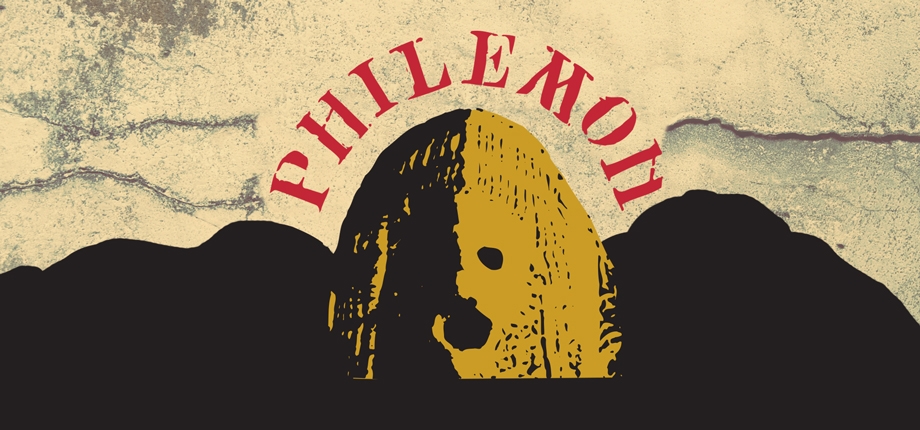Filichia Features: PHILEMON’S CAST ALBUM

Filichia Features: PHILEMON’S CAST ALBUM
Doing a musical is easier when there's a cast album to familiarize your performers with the score.
Church groups and like-minded theater companies interested in producing Philemon - which they should -- now have that opportunity.
The musical's long-playing record has at last become a compact disc, thanks to Harbinger Records.
Finally, there's some justice for a show that deals with justice (or the lack of it that Romans showed Christians). Upon Philemon's premiere in 1975, reviewers said that the musical had "a rippling melodic score" ( The New York Times ) that "makes for a rewarding and moving experience" ( The Wall Street Journal ) and "dazzling beautiful theater" ( The New York Post ) which "should not be missed by anyone" ( Women's Wear Daily ).
These reviews were the type that Philemon's creators - no less than bookwriter-lyricist Tom Jones and composer Harvey Schmidt -- were accustomed to receiving. At the time, musical theater enthusiasts were still in awe that J&S' little show The Fantasticks had been running for 15 years. Little did they know that that that figure would turn out to be a mere 35% of its eventual 42-year run.
In terms of cast size, Philemon is even smaller, requiring only seven performers to the earlier show's eight. Of course, if you care to expand it with an ensemble, the musical can easily accommodate one. As for musical instruments, a flute, xylophone, piano and drum will suffice.
All this is no surprise for Jones and Schmidt were always known as minimalists. Even their biggest Broadway hit - I Do! I Do! - sported only two characters. Philemon lets your audiences know from the first words that there won't be much scenery: "Within this empty space, there is nothing that we can't do." Your audiences' imaginations will fill in the blanks as they travel "from the horrors of hell to a state of grace."
Philemon must be the only musical set in 287 A.D. and in the Roman territory of Antioch (now Western Turkey). The authorities are still having trouble with this relatively new religion called Christianity. They've put to death tens of thousands who believe in Jesus Christ rather than Roman's 12 gods and goddesses. And yet, they haven't been able to snuff out every heretic.
Belonging to no religion at all is our anti-hero is Cockian, a street-performer who's thoroughly amoral. The Roman Commander likes him for his sense of humor and their lack of enthusiasm for where they live.
(Their duet called "The Streets of Antioch Stink" nevertheless has a sweet B-section.)
The lawman doesn't know that he's dealing with an outlaw. Kiki, a lovely lass who's Cockian's co-worker, has more integrity than pragmatism. No Cockian, no act - but given that the authorities want him, she obeys her conscience and turns him in.
Now when Cockian meets The Commander, he expects to be punished, not enjoyed. Instead, to his astonishment he's offered a deal. If he goes undercover and pretends to be the already legendary Christian leader Philemon, he can find out where the "disbelievers" are hiding so that soldiers can capture them and carry out their executions.
Once "Philemon" comes to know these Christians, betraying them isn't easy. He's especially drawn to young Andros, who reminds him of his deceased son. This leads him to remembering Marsyas, the wife he'd unfeelingly abandoned some years earlier. Now "this empty space" can refer to Cockian's feelings about himself and his lack of soul.
Although Cockian sings in 10 of the 15 songs, each of the other six cast members gets at least one chance to shine. The Commander is involved in four. Andros reveals "My Secret Dream" of a better life. Kiki's "Don't 'Kiki' Me" is a jazz waltz that somehow sounds right for the era. Marsyas's "I Love His Face" - meaning Cockian's -- reminds us that beauty is less than skin deep.
A Christian Widow gets "The Greatest of These," which you might feel is the greatest of these 15 songs. Schmidt, who's famous for "Try to Remember," "Soon It's Gonna Rain" and "My Cup Runneth Over," can count this among his most beautiful melodies. Jones' lyric is equally successful; his "collaborator" is no less than St. Paul, whose First Epistle to the Corinthians he quotes.
The CD includes two pieces of material that didn't make the record because of space limitations. There's also a song excised during rehearsals that will make you wonder how it could have been cut. All this in an album to fill in that empty space on your shelf between Phantom and Pippin .
You may e-mail Peter at pfilichia@aol.com. Check out his weekly column each Monday at www.broadwayselect.com and Tuesday at www.masterworksbroadway.com . He can be heard most weeks of the year on www.broadwayradio.com.

























